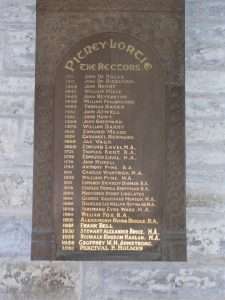Three years ago the Church of Ireland embarked upon discussion of a ‘code of conduct’ for its clergy. It was a bad idea then, and, as questions arise over those discussions, it is a bad idea now.
‘Codes of conduct’ and their ilk are a case of hard cases making bad law. Where all is well, then no code of conduct is necessary and where there are problems, the rights introduced by a code would stymie whatever progress might have been made under the plain, traditional guidance of the bishop.
The Church of Ireland has traditionally been a self-regulating church. The free market system whereby parishes stood or fell by themselves ensured clergy were called to account by the people who paid them; local accountability meant, mostly, that problems were contained. A pooling of resources in dioceses, (with the noble intention of facilitating ministry in situations where local finance was difficult, if not impossible), has achieved little by way of supporting the mission of the church and has allowed the erosion of local accountability, to the extent that some people can do virtually nothing and be ensured of payment and a free house. A managerial approach to the problem, which is implicit in a code of conduct, will only reinforce problematic clergy in their perception that they have inalienable right to house and stipend, even if they do nothing whatsoever.
The answer lies not in yet another piece of bureaucracy, but in a reversion to old ways of doing things; making parishes places of responsibility and accountability and insisting clergy adhere to the terms of their ordination promises. The Book of Common Prayer Ordinal, still used until the late 1980s, required no code of conduct, the duties of the clergy were set forth in unambiguous terms,
Have always therefore printed in your remembrance, how great a treasure is committed to your charge. For they are the sheep of Christ, which he bought with his death, and for whom he shed his blood. The Church and Congregation whom you must serve, is his Spouse, and his Body. And if it shall happen that the same Church, or any Member thereof, do take any hurt or hindrance by reason of your negligence, ye know the greatness of the fault, and also the horrible punishment that will ensue. Wherefore consider with yourselves the end of the Ministry towards the children of God, towards the Spouse and Body of Christ; and see that ye never cease your labour, your care and diligence, until ye have done all that lieth in you, according to your bounden duty, to bring all such as are or shall be committed to your charge, unto that agreement in the faith and knowledge of God, and to that ripeness and perfectness of age in Christ, that there be no place left among you, either for error in religion, or for viciousness in life.
Take the words of the priests’ ordination service seriously, and no code of conduct is required; refuse to take them seriously, and no effective code of conduct will be possible.
